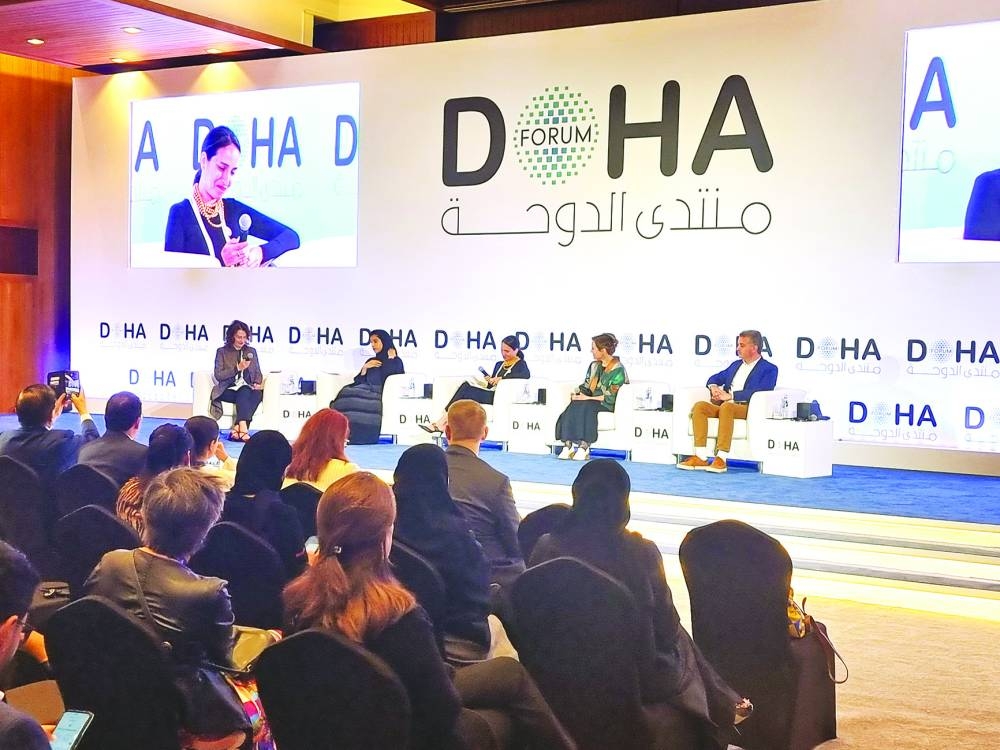A Doha Forum panel discussion on Promoting Dialogue and Diversity Through Art has highlighted the importance and key role of museums in understanding diverse cultures and promoting societal dialogue in an increasingly digital world.
Speaking at the session on Sunday, Caroline Hancock, senior curator of Modern and Contemporary Art at the upcoming Art Mill Museum, underlined the irreplaceable value of physical engagement with art.
“Museums remain a place for experience, a place for deep encounters, for learning in particular, learning and unlearning, a place for empowering very diverse audiences, and this happens in multiple ways,” she said.
“I am a great believer in the power of art and artworks, and the actual physical experience of being with artwork as individuals and also how one interacts with it as a collector,” Hancock added.
“Museums are really a place where you can explore your own identity but also learn so much about other cultures,” the expert said.
Hancock noted that the Art Mill Museum’s ambitious vision extends beyond traditional visual art, aiming to be a multidisciplinary space that covers film, industrial design, crafts, and fashion, creating a highly inclusive and international platform for artistic expression.
The expert said that its unique location, integrated into Doha’s urban landscape, further underscores its role as a vibrant community hub and tourist destination.
“Museums are destinations – they are also tourist destinations – really important places within a city, within a country,” Hancock stated. “The Art Mill Museum has one of the most beautiful locations ... it will actually recycle a still active industrial flour mill, which is very close to the Museum of Islamic Art.”
The panel, moderated by Dr Jelena Trkulja of Qatar Museums, also included Qatari artist Bouthayna al-Muftah, Ecuador’s Minister of Culture Romina Muñoz Procel, and Lusail Institute director Dr Alain Fouad George.
Drawing on her stint as director of Ecuador’s National Museum, Procel shed light on the unique experiences that museums offer that the digital world cannot replicate.
She echoed Hancock’s view, stressing the critical role of museums in preserving and interpreting cultural heritage, even acknowledging the complexities inherent in existing collections which may reflect past biases.
The minister said that preserving and managing collections offer an opportunity to understand people’s way of thinking.
“We can disagree, but we can also respect that way of life, and for me, this must be the starting point for knowledge, for dialogue, for democracy, for the common good,” Procel said.
The minister also highlighted the political challenges faced in expanding museum collections, citing instances where public officials resisted investment in national cultural heritage.
She expressed optimism however, noting a shift in perspective under Ecuador’s current administration, which recognises the significance of cultural production in nation-building.

The panel discussion on Promoting Dialogue and Diversity Through Art underlines the vital role of museums in an increasingly digital world. PICTURE: Joey Aguilar

